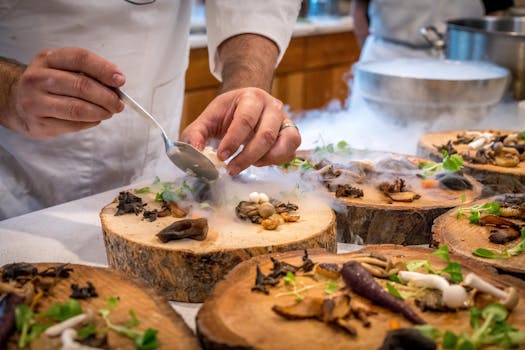Discovering African Cuisine: A Journey Through Flavors
African cuisine is a vibrant tapestry woven from the continent’s diverse cultures, traditions, and histories. With over 1.2 billion people and 54 countries, Africa boasts a rich culinary heritage that varies significantly from region to region. By learning to prepare a traditional African recipe, you can embark on a flavorful journey that not only tantalizes your taste buds but also deepens your understanding of the continent’s cultural diversity.
The Rich Tapestry of African Flavors
Each region of Africa offers unique ingredients and cooking techniques that reflect its geography, climate, and cultural influences. Here are some key characteristics of African cuisine:
- Spices and Herbs: African dishes often feature a variety of spices such as cumin, coriander, and chili peppers, which add depth and complexity to the flavors.
- Staple Ingredients: Common staples include grains like rice, millet, and sorghum, as well as legumes, tubers, and vegetables.
- Cooking Techniques: Methods such as grilling, steaming, and slow-cooking are prevalent, often using traditional clay pots or open flames.
- Regional Variations: Each region has its specialties, from North Africa’s tagines to West Africa’s jollof rice and East Africa’s injera.
Recipe Spotlight: Jollof Rice
One of the most beloved dishes in West Africa is Jollof Rice, a one-pot dish that is both flavorful and versatile. It is often served at celebrations and gatherings, making it a perfect recipe to explore the essence of African cuisine.
Ingredients
- 2 cups of long-grain parboiled rice
- 1/4 cup of vegetable oil
- 1 onion, chopped
- 1 red bell pepper, chopped
- 2 cups of tomato puree
- 1 teaspoon of thyme
- 1 teaspoon of curry powder
- 2 cups of chicken or vegetable broth
- Salt and pepper to taste
- Optional: protein of choice (chicken, shrimp, or tofu)
Instructions
- In a large pot, heat the vegetable oil over medium heat. Add the chopped onions and sauté until translucent.
- Add the red bell pepper and cook for an additional 2 minutes.
- Stir in the tomato puree, thyme, curry powder, salt, and pepper. Allow the mixture to simmer for about 10 minutes, stirring occasionally.
- Add the rice to the pot, stirring to coat it with the tomato mixture.
- Pour in the chicken or vegetable broth, bring to a boil, then reduce the heat to low. Cover and let it cook for about 20-25 minutes, or until the rice is tender and the liquid is absorbed.
- If using protein, add it during the last 10 minutes of cooking to allow it to heat through.
- Fluff the rice with a fork and serve hot, garnished with additional vegetables or herbs if desired.
The Cultural Significance of Jollof Rice
Jollof Rice is more than just a meal; it is a symbol of cultural identity and pride among West Africans. The dish varies from country to country, with each nation claiming its own version as the best. For instance, Nigerian Jollof is known for its spicy kick, while Ghanaian Jollof is often sweeter and smokier. This friendly rivalry has even led to the annual “Jollof Festival,” where chefs compete to showcase their unique takes on the dish.
Exploring Other African Dishes
While Jollof Rice is a fantastic introduction to African cuisine, there are many other dishes worth exploring:
- Injera: A sourdough flatbread from Ethiopia, typically served with various stews.
- Tagine: A slow-cooked stew from Morocco, named after the earthenware pot in which it is cooked.
- Bunny Chow: A South African street food consisting of a hollowed-out loaf of bread filled with curry.
- Piri Piri Chicken: A spicy grilled chicken dish from Mozambique, marinated in a chili sauce.
Conclusion: A Culinary Adventure Awaits
Learning to prepare a recipe from African cuisine is not just about cooking; it is an opportunity to connect with the continent’s rich cultural heritage. By exploring dishes like Jollof Rice, you can appreciate the diverse flavors and traditions that define African culinary practices. As you experiment with different recipes, you will not only enhance your cooking skills but also gain a deeper understanding of the stories and histories behind each dish. So, gather your ingredients, invite friends or family, and embark on a culinary adventure that celebrates the vibrant flavors of Africa!
